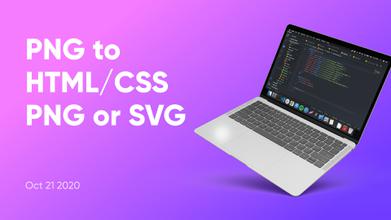How To Deal With Code: Designer's Guide
Jul 13, 2021 10915 seen
Should Designers Know How To Code?

The question of whether UI / UX designers should be able to code is one of the perennial design debates. The more UX design develops, the more opinions arise. We now live in a time when designers are pushing themselves to multitask. To stand out in a saturated market, designers should broaden their skill set. One of the most sought-after talents in coding. A huge part of the design community argues about whether designers should write code. Some choose to look for unicorns that can do both, while others claim they don't exist or just get in the way.
Many designers believe that designers and developers should work together, but each discipline should stick to what they know. Sometimes developers view designers who write code as a threat, whereas others see them as welcoming employees who have learned to speak their language.
What Are The Main Differences Between a UI/UX Designer and a Programmer?

UI and UX design represent different aspects of the creative flow of digital products. Basically, UI design aims to create an efficient and engaging user experience, while UX design aims to provide a positive user experience. Interaction with the product through the user interface is part of the user experience, so UX design as a field of creativity is broader and includes UI design as an integral part of it.
Working on the UX and UI for a digital product such as a website or mobile app, designers have to concentrate on such important aspects as usability, utility, accessibility, desirability.
Now let's understand what these professions stand for:
- UX designers are architects who come up with an overall concept, its structure and flow of interactions, as well as many factors that influence a positive or negative user experience.
- UI designers are architectural renderers who find the best solutions to visually represent an object by the style, environment, user expectations, and aesthetic needs based on an already agreed architecture, structure, and underlying interaction factors.
- Programmers are real builders who actually create the final object. Just like on a construction site, they have different specializations: some are good at creating a foundation, others know how to implement visual features created by designers, and some of them practice effective interaction with this object in certain environments and for new requirements. which may arise later.
Does Design Require Coding?

Every designer at one point or another has faced a dilemma: does he need to learn to code to be successful. In today's world of UX unicorns, when companies post job descriptions asking for UX designers who are also coding, it might make you wonder, "Do UX designers need to code to be successful in this industry?"
As a UI designer, you don't need to write code, but it's very helpful if you have programming skills. Depending on the nature of the product, it is also not uncommon for UI / UX design and development to merge into a single process. Thus, while design and development require different skills, understanding that both are becoming increasingly important for the technology and design industry. Web developers need to understand the design needs of what they are coding, and UI designers need to understand what projects are possible on the backend.
So a UI designer needs to be able to think like a developer and use a design language - timelines and budgets, and what technology can and can't do. If the developer tells you that this feature is impossible, how are you going to refute them without first understanding how to do it? As UX designer and information architect Ben Shumate said, "Real designers create designs on their own."
A user interface designer also needs to have some technical knowledge (no coding) - for example, the intricacies of responsive design. Now that more than half of all web traffic is generated by mobile devices, a solid foundation is needed. High-fidelity prototyping apps like Principle and Framer may also require a bit of coding to take full advantage of all of their features.
What Languages Are Used for UI Design?

While there is no specific language for user interface design, if you are developing for the web, you will benefit greatly from a good foundation in HTML and CSS, even if it's just the ability to communicate with your team. In any almost imaginable user interface design scenario, you will be working in an environment full of programmers who code what you develop. The more efficiently you can communicate your ideas to the development team, and the more effectively they can convey their ideas to you, the better for everyone.
The design field has matured. The UX set continues to grow. Salaries for designers remain stable. And the design has finally taken its place on the proverbial table. Companies are now realizing that customer focus is a competitive advantage. This understanding is reflected in companies that are investing more in UX design. Verdict: UI/UX designers don't need to write code.


